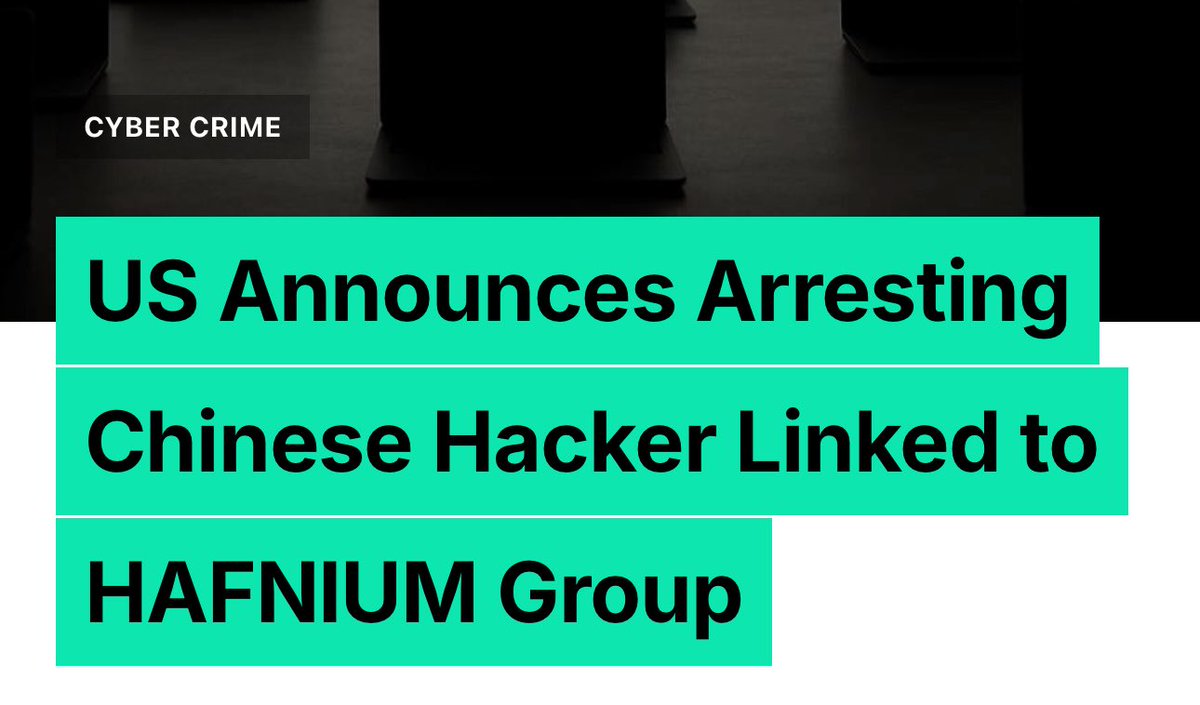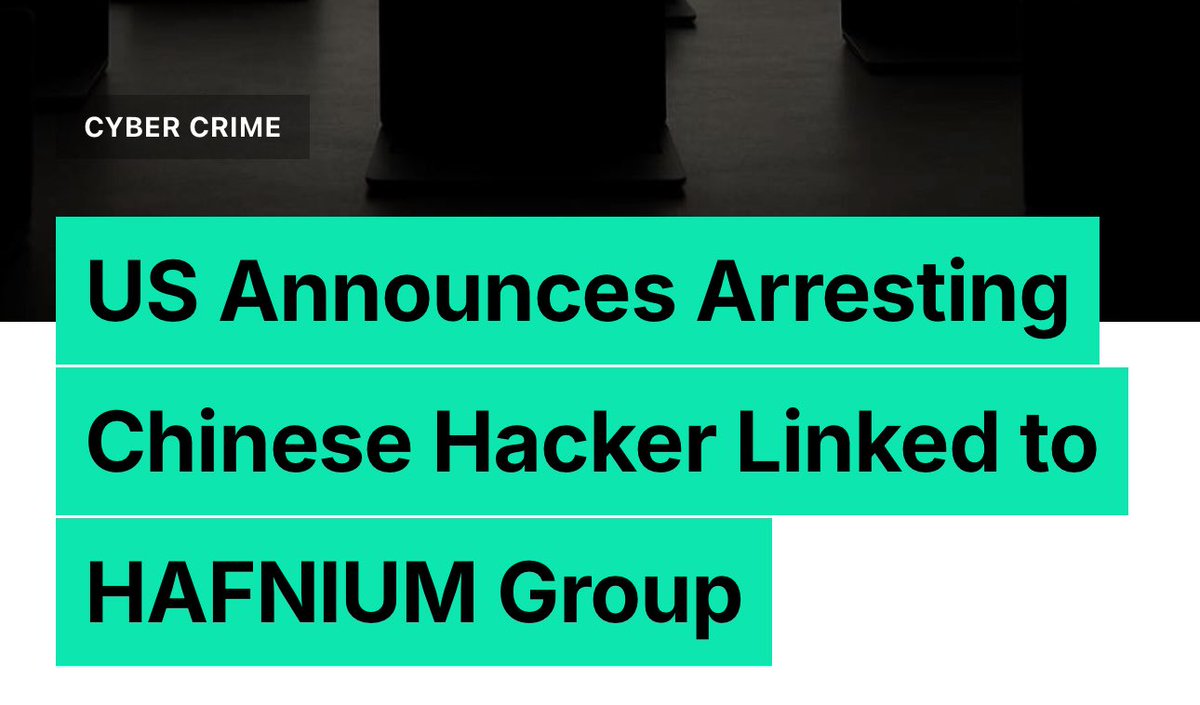Breaking: Xu Zewei Arrested in Italy for Hacking U.S. COVID Research
Summary of the Arrest of Xu Zewei and Its Implications for Cybersecurity
In a significant development on July 9, 2025, the FBI announced the arrest of Xu Zewei in Italy, in collaboration with international partners. Xu is accused of engaging in cyber espionage activities on behalf of the Chinese Communist Party (CCP), specifically targeting U.S. universities to steal critical research related to COVID-19. This incident highlights the ongoing struggle between nations over cybersecurity and the safeguarding of valuable intellectual property.
Background on Cyber Espionage
Cyber espionage has emerged as a formidable threat in the digital age, with state-sponsored hackers targeting sensitive information across various sectors, including healthcare, defense, and technology. The COVID-19 pandemic has intensified the race for research and development, making it a prime target for malicious actors seeking to gain an upper hand.
Universities, often at the forefront of scientific research and innovation, have increasingly become vulnerable to cyber-attacks. The theft of COVID-19 research not only compromises academic integrity but also poses risks to public health and safety.
The Role of the Chinese Communist Party
The CCP’s involvement in cyber espionage has been well-documented, with numerous incidents raising alarms in the international community. The arrest of Xu Zewei underscores a larger pattern of Chinese state-sponsored hacking aimed at acquiring valuable research and technology from Western institutions. The U.S. government has consistently condemned these actions, asserting that they threaten national security and undermine democratic values.
- YOU MAY ALSO LIKE TO WATCH THIS TRENDING STORY ON YOUTUBE. Waverly Hills Hospital's Horror Story: The Most Haunted Room 502
FBI Director Kash Patel’s statement emphasizes the seriousness of these attacks. The relentless efforts of the CCP to infiltrate and exploit U.S. institutions demonstrate a calculated strategy to bolster China’s technological capabilities at the expense of other nations.
The Arrest of Xu Zewei
Xu Zewei’s arrest in Italy marks a significant step in the United States’ broader strategy to combat cyber threats. This operation showcases the importance of international cooperation in addressing cybercrime. The collaboration between the FBI and other law enforcement agencies underscores the need for a united front in the face of global cybersecurity challenges.
Xu is alleged to have played a pivotal role in orchestrating attacks on U.S. universities, where he is said to have targeted research databases and stolen sensitive information related to COVID-19. The implications of such actions are profound, as they not only jeopardize ongoing research efforts but also threaten the security of critical health information during a global pandemic.
Implications for U.S. Universities and Research Institutions
The incident has significant ramifications for U.S. universities and research institutions. As they continue to lead the way in scientific innovation, the need for enhanced cybersecurity measures becomes increasingly critical. Educational institutions must prioritize protection against cyber threats, ensuring that their research is safeguarded from espionage and theft.
Moreover, this situation calls for a reevaluation of how universities collaborate with international partners. While global cooperation is essential for scientific advancement, institutions must remain vigilant and implement stringent security protocols to protect their intellectual property.
The Global Response to Cyber Threats
In response to the rising tide of cyber attacks, countries around the world are ramping up their cybersecurity measures. The arrest of Xu Zewei may act as a catalyst for increased vigilance and collaboration among nations to combat cybercrime. Governments are recognizing the importance of sharing intelligence and resources to enhance their defenses against state-sponsored hacking.
Furthermore, public awareness of cybersecurity threats is growing, prompting institutions and individuals alike to take proactive steps to protect their data. In this evolving landscape, education on cybersecurity practices is imperative, as it empowers individuals to recognize and respond to potential threats.
Conclusion
The arrest of Xu Zewei in Italy represents a crucial moment in the ongoing battle against cyber espionage. As the CCP continues its attempts to infiltrate U.S. institutions and steal sensitive research, it is evident that the stakes are high. The need for robust cybersecurity measures and international cooperation has never been more urgent.
U.S. universities must take proactive steps to protect their research and intellectual property. The incident serves as a stark reminder of the vulnerabilities that exist in today’s interconnected world. By enhancing cybersecurity protocols and fostering global collaboration, nations can collectively work towards safeguarding their institutions against the persistent threat of cyber espionage.
As we move forward, it is essential to remain vigilant in the face of these challenges. The arrest of Xu Zewei should serve as a wake-up call to governments, institutions, and individuals alike to prioritize cybersecurity and protect valuable information from those who seek to exploit it for their gain.

Yesterday, in coordination with our international partners, Xu Zewei was arrested Italy.
Xu is accused of hacking U.S. universities and stealing critical COVID-19 research on behalf of the Chinese Communist Party.
The CCP’s relentless attacks on our institutions will not go… pic.twitter.com/UbEg1x2byr
— FBI Director Kash Patel (@FBIDirectorKash) July 9, 2025
Yesterday, in coordination with our international partners, Xu Zewei was arrested Italy.
It’s not every day that we hear about international arrests, especially those that stir up conversations about cybersecurity and global relations. Just recently, a significant event unfolded when Xu Zewei was apprehended in Italy. This arrest wasn’t a simple case of an individual breaking the law; it has broader implications that highlight ongoing tensions and concerns regarding cybersecurity and intellectual property theft. As reported by [FBI Director Kash Patel](https://twitter.com/FBIDirectorKash/status/1943011559699042737?ref_src=twsrc%5Etfw), this arrest was part of a coordinated effort among international partners.
Xu is accused of hacking U.S. universities and stealing critical COVID-19 research on behalf of the Chinese Communist Party. This claim raises serious questions about the integrity of research institutions and the protection of intellectual property in an increasingly interconnected world. The ongoing battle to safeguard sensitive information is a pressing issue, especially in the realm of scientific research related to public health.
Xu is accused of hacking U.S. universities and stealing critical COVID-19 research on behalf of the Chinese Communist Party.
Cybersecurity has become one of the most crucial areas of concern for governments and institutions alike. With the rise of technology, hackers have found new ways to exploit vulnerabilities in systems, often targeting valuable information. The accusations against Xu Zewei illustrate a disturbing trend where nation-states engage in cyber espionage to gain access to critical research.
Stealing COVID-19 research is particularly alarming. The pandemic has already caused immense global suffering, and the race for effective treatments and vaccines has been incredibly competitive. The idea that a foreign actor could undermine this effort by stealing valuable research adds another layer of complexity to an already challenging situation. The implications of such actions can hinder progress in scientific innovation and ultimately affect public health outcomes.
The Chinese Communist Party’s alleged involvement further complicates matters. The CCP has faced scrutiny over its handling of various issues, including human rights violations and aggressive foreign policies. The accusation that it may be behind an organized effort to steal sensitive data from U.S. universities signals a serious breach of trust and raises questions about international cooperation in research.
The CCP’s relentless attacks on our institutions will not go unnoticed.
The phrase “relentless attacks on our institutions” is particularly powerful. It resonates with ongoing concerns about cybersecurity and the protection of intellectual property in the age of the internet. Institutions, whether they be universities, research facilities, or even private companies, are seen as vital to a nation’s growth and security. When these institutions are targeted, it not only jeopardizes their efforts but also undermines public trust in their ability to protect sensitive information.
The U.S. has been increasingly vocal about the threats posed by cyber espionage. Efforts to strengthen cybersecurity measures have been ramped up, with institutions urged to invest in better defenses and protocols. The arrest of Xu Zewei could be a turning point, signaling to potential hackers that there are consequences for their actions.
Moreover, this incident may encourage greater collaboration among nations to combat cyber threats. Countries are beginning to realize that cyber warfare doesn’t recognize borders, and collective action is necessary to safeguard valuable information. This situation emphasizes the need for ongoing dialogue and partnerships in addressing these modern challenges.
Implications for U.S.-China Relations
The arrest of Xu Zewei is more than just a cybersecurity issue; it has significant implications for U.S.-China relations. As both nations navigate complex dynamics, incidents like this can exacerbate tensions. The ongoing trade war, disputes over technology, and concerns about espionage are already points of friction.
For the U.S., this arrest may serve as a rallying point to strengthen its stance against Chinese cyber activities. It could lead to increased pressure on the Chinese government to address these issues directly. On the other hand, China may retaliate diplomatically or through its own cyber means, creating a cycle of tension that is difficult to break.
Furthermore, this incident raises questions about how nations view each other in the realm of technology and innovation. As countries compete for dominance in various sectors, including technology, the lines between competition and espionage become blurred. The arrest of Xu Zewei could be seen as a warning to other nations contemplating similar actions.
The Role of International Cooperation in Cybersecurity
As we navigate the complexities of cybersecurity, international cooperation becomes paramount. The arrest of Xu Zewei highlights the importance of collaborative efforts among nations to combat cyber threats. Countries must share information, resources, and strategies to effectively protect their institutions from malicious actors.
In recent years, we’ve seen a growing trend of nations forming alliances to address cybersecurity challenges. These partnerships can take various forms, including intelligence sharing, joint training exercises, and the development of international cybersecurity norms. By working together, countries can enhance their collective defenses and deter potential cybercriminals.
Moreover, public-private partnerships are essential in this fight. Many of the most critical research institutions are tied to private companies that have their own cybersecurity needs. By collaborating with the private sector, governments can create a more robust defense against cyber threats.
The Future of Cybersecurity and Intellectual Property Protection
Looking ahead, the landscape of cybersecurity and intellectual property protection will continue to evolve. As technology advances, so too will the tactics employed by cybercriminals. This means that institutions must remain vigilant and proactive in their approach to security.
Investments in cybersecurity infrastructure will be crucial. This includes not only technological advancements but also training and education for staff. Institutions must foster a culture of cybersecurity awareness, ensuring that everyone understands their role in protecting sensitive information.
Additionally, the legal frameworks surrounding cybersecurity and intellectual property will need to adapt to keep pace with the changing landscape. As new technologies emerge, laws and regulations must evolve to address the unique challenges they present.
In this environment, transparency will be key. Institutions must communicate openly about their cybersecurity efforts and any incidents that occur. This not only builds trust but also encourages collaboration among stakeholders.
Conclusion
The arrest of Xu Zewei in Italy serves as a stark reminder of the ongoing challenges posed by cyber threats and the importance of safeguarding our institutions. As we navigate this complex landscape, the need for international cooperation, robust cybersecurity measures, and a proactive approach to protecting intellectual property has never been more critical.
By remaining vigilant and working together, we can help ensure that our institutions are equipped to face the challenges of the digital age. The fight against cybercrime is far from over, but with commitment and collaboration, we can protect our valuable research and safeguard our future.

